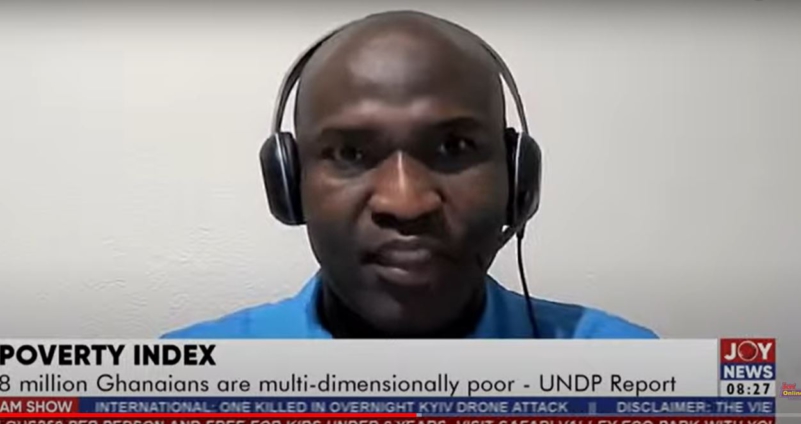An Economist, Dr Sa-ad Iddrisu, says although Ghana is one of the few countries in Africa to have poverty alleviation programmes, its implementation strategies have always been inefficient.
The expert says implementation strategies have become politicized. As a result, those who are to benefit from it have rather been sidelined.
His comments follow a recent report by the United Nations Development Programme (UNDP) which revealed the high rate of poverty in Ghana.
According to the report, 8 million Ghanaians, are multi-dimensionally poor.
Touching on this, the economist said policies put together can alleviate poverty if there is transparency.
“As a country, we are one of the luckiest in Africa to have poverty alleviation programmes but come to think of it, the implementation has always been a problem in Ghana. It’s not like we don’t have good policies to address the challenges of poverty, but the way we implement it, coupled with our political atmosphere, it turns everything into politics and shifts the benefits away from the people that actually need it,” he said on JoyNews’ AM show on Thursday.
Citing the Livelihood Empowerment Against Poverty (LEAP) policy, the expert said although it is a viable policy, his research on the policy reveals that there is no online portal where one could apply to be enrolled.
This he explained would make it difficult for people of old age and others who evidently need such a programme to survive to be denied the opportunity.
“How can we assist them to get LEAP? There is no online application,” he lamented.
He observed that the policy could be hijacked by politicians who are authorities at the district or constituency level and are responsible for determining who qualifies to be enrolled.
Making a comparison, Dr Iddrisu said the US system is such that anyone who qualifies to be admitted onto a poverty alleviation programme does not have to go around begging authorities but they only apply online after which the government makes provision for such people based on their income qualification.
Speaking also on the country’s National Health Insurance Scheme (NHIS), the economist said politics has rendered the programme quite irrelevant although it could have helped people in the wake of the multi-dimensional poverty case.
According to him, most health institutions nowadays do not regard the scheme anymore; they rely on “cash and carry.”
He concluded that the current resurgence in the poverty rate stems from poor leadership.
Latest Stories
-
Radio station closures not politically motivated – Communications Minister
8 seconds -
Mahama bids farewell to UK envoy, calls for deeper economic and security ties
5 minutes -
National Integrity Awards: Ghana has an opportunity to rewrite new chapter of national life -Justice Atuguba
8 minutes -
No radio station is above the law – Communications Minister
9 minutes -
If the power of the Speaker is fully invoked, it could be a danger to career progression of MPs – Bagbin
19 minutes -
Over 100 SOEs comply with Mahama’s audited accounts directive- SIGA
28 minutes -
Government to undertake massive retooling of Police Service – Mahama
30 minutes -
Over GH¢80m mobilised by MMDAs in first quarter of 2025
33 minutes -
Urgently resolve the nurses and midwives strike to save lives – CSOs to gov’t
48 minutes -
Let your conduct reflect high esteem of Parliament -Speaker Bagbin urges MPs
52 minutes -
Police intercept trucks carrying 150 bags of Indian hemp
59 minutes -
GNAT leadership pays courtesy visit to Mahama
1 hour -
Education Minister seeks Qatar’s support for Islamic Medical School in Northern Ghana
1 hour -
Global oil prices soar after Israel attacks Iran
1 hour -
More than 130m children were engaged in child labour in 2024 – ILO, UNICEF
1 hour

